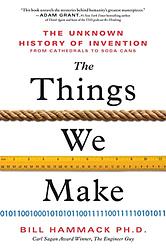Invention by Norbert Wiener
The book in question is a seminal work that delves into the complex relationship between human beings and machines, exploring the profound implications of technological advancements on society. It discusses the principles of feedback and control in engineering and how these concepts apply to biological systems, ultimately leading to the development of cybernetics. The author, a prominent mathematician and philosopher, examines the ethical and philosophical dimensions of artificial intelligence and automation, cautioning against the uncontrolled use of technology and advocating for a future where machines enhance human life rather than replace it.
The 5496th greatest book of all time
Ranking Details:
Our ranking system awards points to books based on their appearance and position on curated lists. Here's how it works:
Unranked Lists: For lists without specific rankings, each book receives points equivalent to the list's weight. This approach recognizes the book's inclusion on prestigious lists.
Ranked Lists: Books on ranked lists receive points in two ways:
- Base Points: Initially, every book is awarded points equal to the list's weight, acknowledging its significance.
- Bonus Points: Additionally, books earn bonus points based on their ranking. The total bonus pool, equal to 100% of the list's weight, is distributed among the books, with higher-ranked books receiving more points.
Exponential Distribution: The distribution of bonus points follows an exponential model. This means the top-ranked book (#1) receives significantly more bonus points than those further down the list (e.g., #100). Our algorithm ensures that higher placements are rewarded more generously, reflecting the achievement of a top rank on any given list.
This scoring system ensures that each book's ranking reflects both its presence on multiple lists and its positions within those lists, providing a comprehensive measure of its acclaim and popularity.
Total Points: 72
Since this book was first published in 1948, there is a penalty of 0%. The age adjusted score is 72.0.
This is to prevent newer books from reaching super high on the ranked list of the greatest books of all time. The greatest books should also stand the test of time.
- score: 72 -- Best Science Book Ever (Weight: 63)

